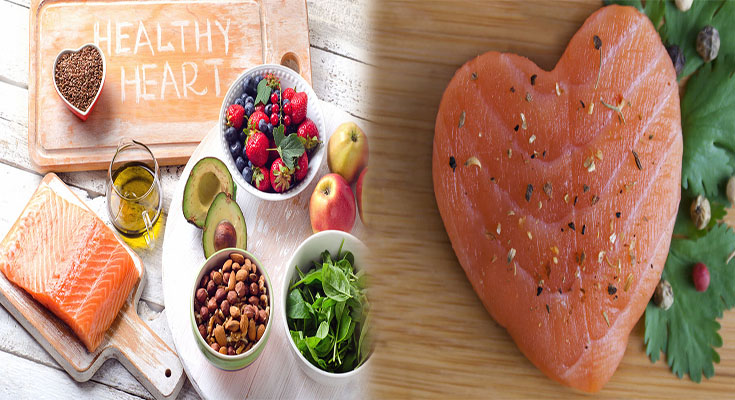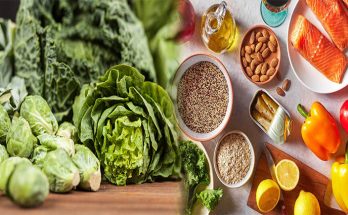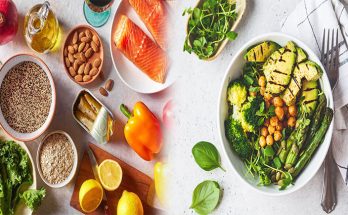There are a number of foods that are beneficial for your heart. These include low-fat dairy products, low-fat yoghurt, egg white, cold water fish, skinless poultry, legumes, and lean meat. You should also avoid foods that contain excess sugar, such as white rice, and white flour products. These foods also contain unhealthy fats, such as trans and saturated fats.
Whole grains
One of the most common causes of death in the United States is coronary heart disease (CHD), but it can be prevented with a healthy diet and lifestyle. Although the exact mechanisms are unknown, studies have shown that whole grains can reduce the risk of CHD. Epidemiological studies have consistently documented the benefits of whole grain consumption, but few studies have examined the relationship between specific whole grains and CHD risk.
Fish
Increasing your fish intake is an important way to fight heart disease. Fish is rich in omega-3 fatty acids and has been proven to lower your risk of heart attacks and strokes. It is important to remember, however, that environmental contaminants may negate some of the benefits of fish.
Blueberries
According to the USDA’s Human Nutrition Center, blueberries have antioxidant properties, which reduce the risk of heart disease. This is because blueberries contain anthocyanins, a polyphenol that helps the body reduce cardiovascular risks. These compounds also help lower LDL cholesterol and fight inflammation.
Grapes
The polyphenols in grapes are believed to reduce the risk of cardiovascular disease and blood pressure. They also reduce chronic inflammation, which is a major risk factor for heart disease. Consumption of grapes has been shown to reduce cholesterol levels. However, while grapes are known for their heart health benefits, the risk of a heart attack is unknown without an electrocardiogram.
Swiss chard
Swiss chard is an extremely nutritious food that is low in calories, carbs, and sugars, yet high in fiber and vitamins. It is also widely available and versatile, making it an excellent addition to your diet. One cup of cooked chard has only 1.4 grams of carbohydrates, and almost half of that is fiber. It also contains vitamin K1, a group of fat-soluble compounds that are essential for various cellular functions and blood clotting. Vitamin K1 is also essential for bone health, as it helps to form the mineral osteocalcin.
Cayenne pepper
Cayenne pepper is a hot pepper with antioxidant and anti-inflammatory properties. It contains vitamin C and B6, potassium, manganese, and flavonoids. Combined, these nutrients provide powerful benefits for the cardiovascular system. In addition to its potent antioxidant properties, cayenne pepper also helps suppress the appetite and curbs salt cravings. Its active ingredient, capsaicin, has antibacterial, antifungal, and anti-inflammatory properties.
Flavorful garlic
Research shows that consuming foods with garlic can lower cholesterol levels. This can help prevent heart disease and coronary artery hardening. Coronary artery hardening is a sign of disease in the arteries and increases the risk of heart attack. In addition, garlic may help reduce the risk of osteoporosis, which is associated with aging. And it may also slow the effects of osteoarthritis, though more studies are needed to confirm this connection.
Legumes
Legumes are a great way to protect your heart and prevent heart disease. They help lower blood cholesterol levels and can replace foods that are high in fat and cholesterol. They also help lower your risk of developing diabetes, heart disease, and stroke. Eating more legumes can help you feel healthier, too.
Leafy greens
While leafy greens may help prevent heart disease and lower blood pressure, they may also be contaminated with harmful bacteria. This can happen from animal poop in the fields and irrigation water used for growing them. These germs can also be found in the packing and processing facilities and in trucks used for shipping. As a result, it is important to buy leafy greens that are grown and processed in a safe manner.
Organic dairy
Organic dairy foods are a good choice for those who want to reduce their risk of heart disease. The United States Department of Agriculture and the Department of Health and Human Services advise against eating full-fat dairy products, as they contain saturated fats that raise LDL cholesterol (bad cholesterol). Excessive amounts of LDL cholesterol are linked to many cardiovascular diseases.





